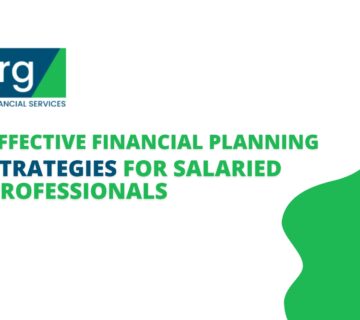Financial planning for salaried employees is a crucial step that creates a path for a secure and fulfilling future. Whether you’re just starting your career or have been in the workforce for years, effective management of debt and expenses is essential. Here, we’ll delve into practical tips and strategies tailored to the unique financial landscape of salaried individuals. By implementing these approaches, you can confidently navigate your financial journey towards stability and prosperity.
Understanding the Importance of Financial Planning for Salaried Employees:
For salaried employees, financial planning is similar to making a path for your financial success. It involves creating a comprehensive roadmap that encompasses various aspects such as budgeting, debt management, saving for goals, and planning for retirement. By taking a proactive approach to financial planning, you empower yourself to make informed decisions that align with your financial aspirations.
Creating a Realistic Budget: The Foundation of Financial Planning
Financial planning for salaried employees begins with crafting a realistic budget. Calculate your monthly income after taxes and deduct essential expenses such as housing, utilities, transportation, and groceries. Designate a segment of your earnings for savings and investing. This disciplined approach to budgeting ensures that your expenses are well-aligned with your earnings.
Managing Debt Wisely: Strategies for Success
Debt can weigh heavily on financial well-being, but with a strategic approach, it can be effectively managed:
- Prioritize High-Interest Debts: Start by tackling debts with the highest interest rates, such as credit card balances. Paying off high-interest debt first minimizes the amount of interest you’ll pay over time.
- Consolidate and Refinance: Consider consolidating multiple debts into a single loan with a lower interest rate. Similarly, explore refinancing options to reduce interest payments on existing loans.
- Emergency Fund: Establishing an emergency fund provides a safety net during unexpected financial challenges, helping you avoid accumulating more debt.
- Negotiate with Creditors: If you’re struggling to meet debt payments, don’t hesitate to communicate with your creditors. They might be willing to negotiate more manageable repayment terms.
Strategies for Efficient Expense Management
- Distinguish between Wants and Needs: Differentiate between essential expenses and discretionary spending. Prioritize needs and be mindful of wants to control unnecessary spending.
- Automate Savings: Arrange automatic transfers to your savings or investment accounts, guaranteeing regular contributions and minimizing the chance of diverting the funds for other purposes.
- Limit Lifestyle Inflation: As your income increases, avoid inflating your lifestyle at the same rate. Allocate a significant portion of raises or bonuses towards debt reduction or savings.
- Track and Analyze Spending: Regularly review your expenses to identify areas where you can cut back. Various budgeting apps and tools can assist in tracking your spending patterns.
Planning for Future Goals and Retirement
While managing debt and expenses is crucial, don’t overlook the importance of planning for future goals and retirement:
- Set Financial Goals: Establish short-term and long-term financial goals, such as buying a home, funding education, or traveling. Having clear objectives helps you stay motivated and focused.
- Contribute to Retirement Accounts: Take advantage of employer-sponsored retirement plans like EPF, Govt. initiated retirement benefit schemes like NPS and other yojna or individual annuity plans etc. Regular contributions to these accounts ensure you’re building a secure retirement fund.
- Invest Wisely: Educate yourself about different investment options and consider seeking advice from financial professionals. Expanding your investment portfolio diversely can lead to gradual wealth accumulation.
Review and Adjust Your Plan Regularly
Financial planning for salaried employees is not a one-time task; it’s an ongoing process. Periodically review your budget, debt reduction progress, and investment strategies. Life circumstances change, so your financial plan should adapt accordingly.
Conclusion
Financial planning for salaried employees is a powerful tool that empowers you to take control of your financial destiny. By creating a realistic budget, managing debt wisely, and prioritizing future goals, you’re setting the stage for a secure and prosperous future. Remember, every step you take towards effective financial planning with JRG Financial Services brings you closer to achieving your dreams and aspirations.




